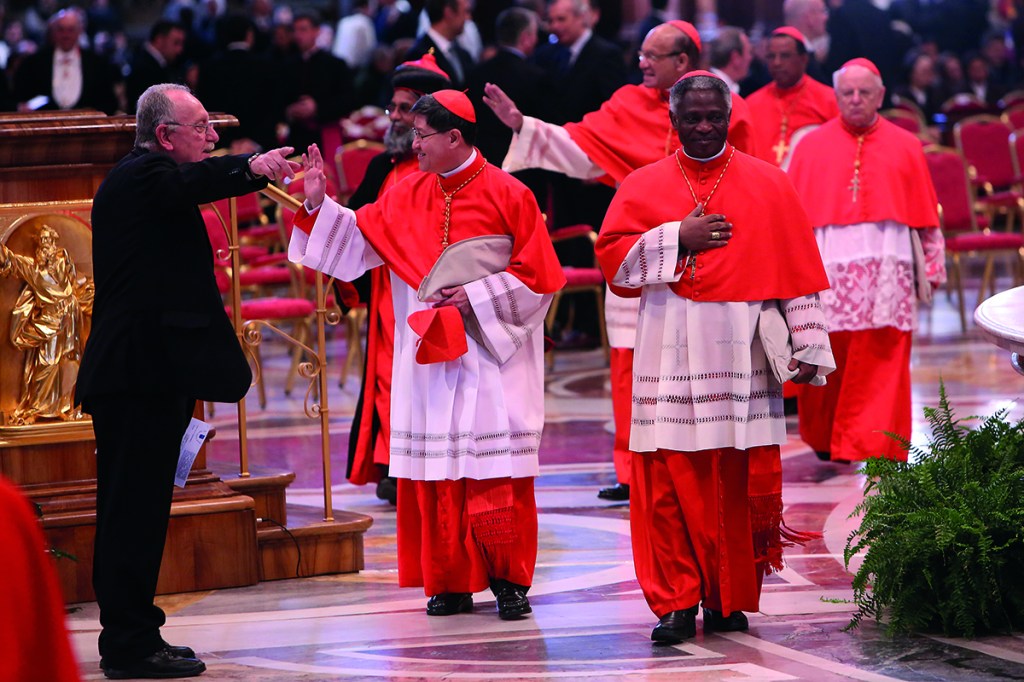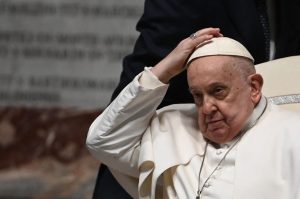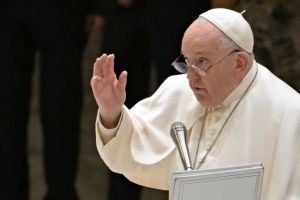Once upon a time, in the days when you could round a corner in Rome without accidentally tripping over the snoozing spirit of Vatican II and setting it off into a shrieking fit, popes weren’t inaugurated: they were crowned. A magnificent procession accompanied the new pontiff as he was carried into St Peter’s Basilica on the throne-like sedia gestatoria to receive the papal tiara, a triple crown symbolizing the threefold mission of St Peter’s successors: to teach, govern and sanctify.
A sobering dose of reality was built into the ceremony. Three times a master of ceremonies would halt the procession in its tracks. Stepping before the pope, he would ignite a bundle of highly flammable flax, issuing a solemn warning as it crumbled into ashes: Sic transit gloria mundi. Thus passes the glory of the world.
They don’t do it that way anymore. But any papabile who really believes Christ will ask him on Judgment Day, ‘What have you done with my Church?’ will fear that moment of accountability. The cardinal electors have a serious responsibility to filter out the power-hungry, the heretical and the incompetent in favor of the saintly, the well-formed and the capable.
This is no simple task. Conclaves happen at short notice. Cardinals often don’t know each other well, especially if their duties bring them to Rome only occasionally. Conclaves operate under complete secrecy, and their access to outside sources of information is blocked. The electors are under intense pressure to reach an agreement — on one notable occasion, the Romans cut off the food supply to make them hurry up. It worked.
And although severe penalties apply to campaigning, not all cardinals are saints, and some will perforce scheme to gain the pontificate for themselves or their friends if they can do so without getting caught breaking the rules. At the 2005 conclave, a group of progressives known as the St Gallen Mafia was rumored to have made an unsuccessful attempt to prevent the election of Benedict XVI. They had better luck in 2013, it is believed, when Francis came out ahead.
In light of these practical realities, respected Vatican expert Edward Pentin has written The Next Pope, a meticulously researched collection of the profiles of 19 cardinals he believes are most likely to step into the shoes of the Fisherman. The Next Pope is not for the dilettante. Intended primarily as a resource to help cardinal electors prepare for the next conclave, it is thorough, well-organized and rich in detail. Pope-watchers and anyone with an interest in the Vatican will find it a rewarding, if lengthy, read. The known facts about each man are examined in three different lights, corresponding to the three duties represented by the papal tiara: teaching, governing and sanctifying.
***
A print and digital subscription to The Spectator is just $7.99 a month
***
Thus we are treated to fascinating glimpses of Cardinal Duka’s close relationship with the Czech government and Cardinal Gerhard Müller’s edgy theology and authoritative, if occasionally tone-deaf, leadership style in Regensburg. It’s hinted that Cardinal Ouellet’s fierce loyalty to Pope Francis derives in part from the team spirit he acquired playing hockey in his native Québec. Cardinal Burke, in disfavor because of his role in submitting the still-unanswered dubia, formal questions asking Pope Francis to clarify certain confused doctrinal issues, is nonetheless universally respected for his grasp of canon law.
Naturally, Vatican observers don’t unanimously agree that all 19 are plausible candidates. But the book includes a fair cross-section of all theological, pastoral and political stripes: from the questionable orthodoxy and political activism of a Cardinal Zuppi of Bologna, to the meditative mysticism of a Cardinal Sarah of Guinea, via the dancing Cardinal Tagle of the Philippines and the Pope’s Bismarckian secretary of state, Cardinal Parolin (it’s worth buying the book just to read Parolin’s profile). While The Next Pope is written from a conservative perspective (orthodoxy is clearly a key concern for the author, as is the liturgy), pains have been taken to present the facts objectively. Touches of interpretive analysis are few and obvious.
When the time comes, the next pope, whoever he may be, will inherit a set of problems that have gradually worsened over the last 60 years, for Pope Francis doesn’t seem to possess the spirit of a great reformer. The abuse crisis, financial scandals, the dearth of vocations to the priesthood, the emptying of churches — these are monumental practical problems, but they’re merely the external signs of a growing spiritual hollowness within. What we need is a pope with the courage to apply Christ’s teaching: ‘If you love me, keep my commandments’ — a pope who believes the commandments can be kept, and a pope who can teach us the kind of love it takes to keep them. Catholics just want Catholicism back. It would be nice to have a pope who agrees.
This article is in The Spectator’s August 2020 US edition.


















